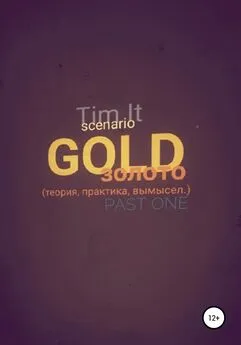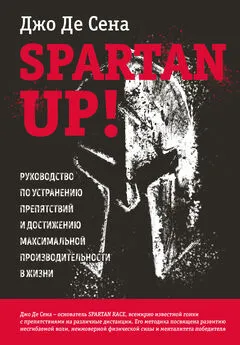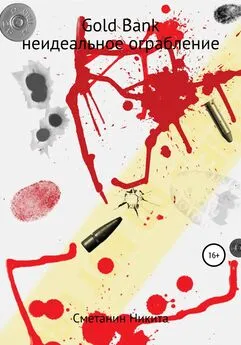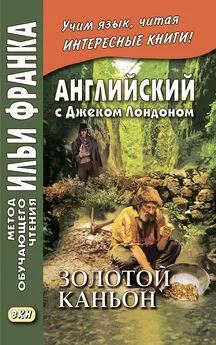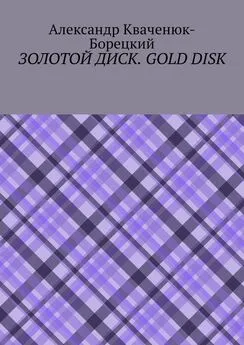Clive Cussler - Spartan Gold
- Название:Spartan Gold
- Автор:
- Жанр:
- Издательство:неизвестно
- Год:неизвестен
- ISBN:нет данных
- Рейтинг:
- Избранное:Добавить в избранное
-
Отзывы:
-
Ваша оценка:
Clive Cussler - Spartan Gold краткое содержание
The debut of a brand-new, action-packed series from the #1 New York Times bestselling master of 'pure entertainment'.
Thousands of years ago, the Persian king Xerxes the Great was said to have raided the Treasury at Delphi, carrying away two solid gold pillars as tribute. In 1800, Napoleon Bonaparte and his army stumble across the pillars in the Pennine Alps. Unable to transport them Napoleon creates a map on the labels of twelve bottles of rare wine. And when Napoleon dies, the bottles disappear.
Treasure hunters Sam and Remi Fargo are exploring the Great Pocomoke Swamp in Delaware when they are shocked to discover a World War II German u-boat. Inside, they find a bottle taken from Napoleon's 'lost cellar.' Fascinated, the Fargos set out to find the rest of the collection. But another connoisseur of sorts has been looking for the bottle they've just found. He is Hadeon Bondaruk - a half- Russian, half-Persian millionaire. He claims to be a descendant of King Xerxes himself.
And he wants his treasure back.
Spartan Gold - читать онлайн бесплатно полную версию (весь текст целиком)
Интервал:
Закладка:
“Go on.”
“I never used my iPhone in any of those places; we had the Iridium. I never even powered it up, and only did that here last night—no, that’s not right. I checked e-mail when we landed in Salzburg.”
“You’re sure?”
“Pretty sure. Could they have bugged it?”
“Technically it’s doable, but when could they have done it? It’s never been out of your sight, has it?”
“Once. I left it at the B&B when we went to raise the Molch.”
“Damn. The other times—Rum Cay, Château d’If, and Elba—did you just power it up, or did you connect to the Internet?” The iPhone could connect to the Internet in two ways, either through its built-in Edge network or via local wireless networks.
“Both.”
“Kholkov could have installed a transponder. Every time you powered up or connected to the Internet the transponder tapped the iPhone’s GPS and sent a ping back to Kholkov saying ‘here.’ ”
Remi exhaled heavily, her mouth set. “Do you think they’re—” She started to turn around but Sam stopped her: “We’ll look when we’re getting off. When was the last time you powered up? The hotel?”
“Right.”
“I didn’t notice anyone following us this morning.”
“Me neither, but with these crowds it’s hard to be sure.”
“Unfortunately, Schönau’s not that big. With a half dozen men they could have simply spotted us from a distance and watched us board the boat.”
“What do we do?”
“First things first, we drag the riddles and the research to the burn folder,” he replied, already doing so on his own. “Can’t risk Kholkov getting his hands on it.” As he had with most of their personal and household gadgets, Sam had tweaked their iPhones, adding a number of applications, including a quick-erase folder. Trying to open the folder without a password would instantly delete its contents. Once Remi had her data moved, Sam said, “Now we hope for a miracle.”
“Which is?”
“That you’re wrong about this. Problem is, that doesn’t happen very often. Let me see your phone.” She gave it to him. He got out his Swiss Army knife and went to work.

Sam, his head bent over the dissected iPhone in his lap, finally muttered, “There you are.”
Remi leaned down. “Something?”
Using his knife’s tweezers, he lifted a pinkie nail-sized circuit chip from the iPhone’s innards. A pair of monofilamentlike leads trailed down to the phone’s battery. “The culprit,” he said. The good news was, the bug was set to transmit only when the phone was on; no signal ping would alert Kholkov that they’d found the device. Sam detached the leads and dropped the chip into his shirt pocket and started reassembling the iPhone.
Twenty minutes later, with most of the mist dissipating under a sun-filled blue sky, they rounded the Hirschau Peninsula. Saint Bartholomae came into view, its bright red onion domes glowing in the sun and the snow-veined granite of the mountains rising behind them. The meadow in which Saint Bartholomae’s sat was on a forty-acre wedge of shoreline extending back to the forest. There were two dock areas, one for visitor arrivals and departures; the other, situated nearer the chapel, a covered boathouse. Strung out behind the chapel on islands of green lawn and meandering paths were a dozen wooden outbuildings, all rough-hewn and ranging from barn- to cabin-sized.
The captain circled the dock area once, waiting for another electric boat to disgorge its passengers, then headed in and glided alongside the pier. A crewman jumped across the gap, tied off the stern and bow lines, then swung up the boat’s protective railing.
Scanning their fellow passengers for familiar faces, Sam and Remi disembarked, pausing to drop some Trinkgeld into the bulkhead cup.
“Didn’t see anyone,” Sam muttered as he stepped onto the dock, then offered his hand to Remi. “You?”
“No.”
Theirs was the second boat of the morning to put ashore; the majority of the first group was still lingering in the landing area and around the gift shop, snapping photos and studying maps. Sam and Remi moved along the split-rail fence that encircled the landing, scanning faces before the crowd had a chance to disperse.
As they walked they could hear several tour guides starting their introductory speeches over the background babble:
“Originally built in the twelfth century, Saint Bartholomae was once considered the protector of alpine farmers and of milkmaids. . . .”
“. . . find the interior floor plan is based on the Salzburg Cathedral and the exterior stucco work was done by famed Salzburg artist Josef Schmidt. . . .”
“. . . until 1803 the hunting lodge adjacent to the chapel was the private retreat of the Prince-Provosts of Berchtesgaden, the last of whom . . .”
“. . . After Berchtesgaden became part of Bavaria, the lodge became a favorite Wittelsbach hunting cabin. . . .”
Sam and Remi completed their circuit of the landing and ended up back at the dock. They’d seen no familiar faces. A half mile up the fjord, two more electric boats were coming around the peninsula.
Sam said, “We can wait here and check faces as each boat comes in or mix with the crowds and start hunting for clues.”
“I’m not a big fan of waiting,” Remi said.
“Me neither. Let’s get moving.”
They made their way into the gift shop, where they selected a pair of sweatshirts—one a pale yellow, the other a dark blue—from the rack, then a pair of floppy hats from another display. They paid for their purchases and headed to the restrooms to don their new clothing. If Kholkov and his men had been observing them from the Schönau docks, these rudimentary disguises, combined with the crowds, which had by now swelled to over two hundred, might provide Sam and Remi enough cover to move about anonymously.
“Ready?” he asked.
“As I’ll ever be,” Remi replied, tucking her auburn hair under her hat.
For the next twenty minutes they loitered around the landing area, taking pictures of the fjord and the mountains until Remi said, “Got him.”
“Where?” Sam replied without turning.
“The boat that’s circling, waiting to dock. Starboard side, fourth window back.”
Sam turned and pointed his camera across the fjord and caught the incoming boat in the corner of the frame. He zoomed in, took a few pictures, lowered his camera. “Yep, that’s Kholkov. I counted three others. Wait here.”
Hat pulled low over his eyes, Sam strolled back toward the dock. “Hey, there, just a minute,” he called to the deckhand who was getting ready to untie the docked boat. “Forgot the Trinkgeld .” Sam held up a ten-euro note.
“Certainly, sir, go ahead,” the deckhand said.
Sam hopped aboard, dropped the note and transponder chip into the Trinkgeld cup, then stepped back onto the dock. While in the bathroom he’d used the price stickers from their sweatshirts to affix a spare watch battery to the chip. The battery wouldn’t power the transponder for more than thirty minutes, he suspected, but it would be long enough for their purposes.
He made his way back to Remi, who asked, “Think it’ll work?”
“It’ll work. They won’t have a choice but to follow it. The question is, how will Kholkov handle it?”
Following the throng, half of whom were taking a guided tour, the other half on their own exploration, Sam and Remi made their way down the broad, white-graveled path toward the chapel. Back at the dock, Kholkov and his three companions were disembarking.
“You think they’re armed?” Remi asked.
“I’d put money on it.”
“We could find someone, see if there are any security guards.”
“I don’t want to put anyone in Kholkov’s way. Who knows what he’d do? Besides, right now we’re still a step ahead. No use in squandering that. Let’s keep going, finish the job, find what we’ve come for, and go.”
“Okay. So: the riddle. The first half we’ve solved,” Remi said. “That leaves us with two lines: ‘The Genius of Ionia, his stride a battle of rivals’ and ‘A trio of Quoins, their fourth lost, shall point the way to Frigisinga.’ Something about that first line keeps nagging me.”
“Such as?”
“Something from history. A connection I’m overlooking.”
From behind them they heard a voice: “Pardon me, please . . . excuse me. . . .”
They turned and saw a woman on crutches trying to get past them. They stepped aside, and the woman smiled her thanks as she passed. Remi’s eyes narrowed as she watched her move off.
“I know that look,” Sam said. “Lightbulb pop on?”
Remi nodded, her eyes still fixed on the woman. “Her crutches. The one on her right is set a notch lower.”
“So?”
“Put it another way: Her stride isn’t ‘a battle of rivals,’ ” she replied, her face lighting up. “That’s it, come on.” She hurried down the path to where it widened before the chapel and stopped at the fence, making sure they were away from prying ears. She hurriedly began tapping on her iPhone’s screen. “There! Got it! You’ve heard of the Ionian League—ancient Greece, a confederation of states formed after the Meliac War?”
“Yes.”
“One of the members of the Ionian League was the island of Samos—the birthplace of the ‘Genius of Samos,’ also known as Pythagoras. You know, the father of the triangle?”
“I’m still not following.”
“The woman’s crutches . . . one was shorter than the other. If you stretch your imagination they formed a scalene triangle—two unequal sides.”
Now Sam caught on. He smiled. “Pythagoras was the father of the isosceles triangle—two equal sides . . .”
“ ‘His stride a battle of rivals,’ ” Remi quoted again.
“So we’re looking for an isosceles triangle.”
“Right. Probably marked by Laurent’s cicada stamp. That leaves us with one line: ‘A trio of Quoins, their fourth lost, shall point the way to Frigisinga.’ ”
Sam looked over his shoulder and scanned the crowds until he spotted Kholkov, who was strolling around the landing area. His cohorts wouldn’t be far away. Sam was about to turn away when he saw Kholkov pull a BlackBerry from his pocket and study the screen. He jerked his head up, looked around, then gestured to someone in the crowd. Ten seconds later his three companions were huddled around him. After a brief conversation two of them turned and started jogging back to the dock. Kholkov and the other man headed for the chapel path.
“Took the bait,” Remi said.
“But only partially. That’s what I was afraid of. The question is, when will he realize the obvious?”
“Which is?”
“That he’s got us trapped. All they have to do is stake out the dock and wait for us to come back.”
CHAPTER 47
Quoin,” Remi murmured, thinking aloud as they walked. “Three options: a wedge used to secure printer’s blocks; wedges used to raise the barrel of a cannon; or architectural cornerstones. It has to be the last one. I don’t see any printing presses or artillery.”
Sam nodded absently, half his attention on keeping Kholkov and his partner in sight; they were halfway down the path to the chapel. Their heads swiveled this way and that, searching for their quarry.
Remi continued brainstorming: “A lot of corners around, but we have to assume it’s not one of the wood buildings.”
The split-rail fence on their left gave way to a hedge-lined Biergarten with umbrella-covered patio tables. A Bavarian brass band played an oompah folk song as onlookers clapped and sang along. Sam and Remi left the Biergarten behind and circled around the rear, lodge-like portion of the chapel to the north lawn.
Читать дальшеИнтервал:
Закладка:

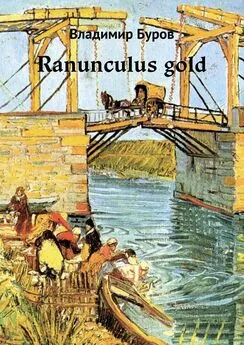
![Джо Сена+ - Spartan up! Руководство по устранению препятствий и достижению максимальной производительности в жизни [litres]](/books/1059232/dzho-sena-spartan-up-rukovodstvo-po-ustraneniyu-pr.webp)
